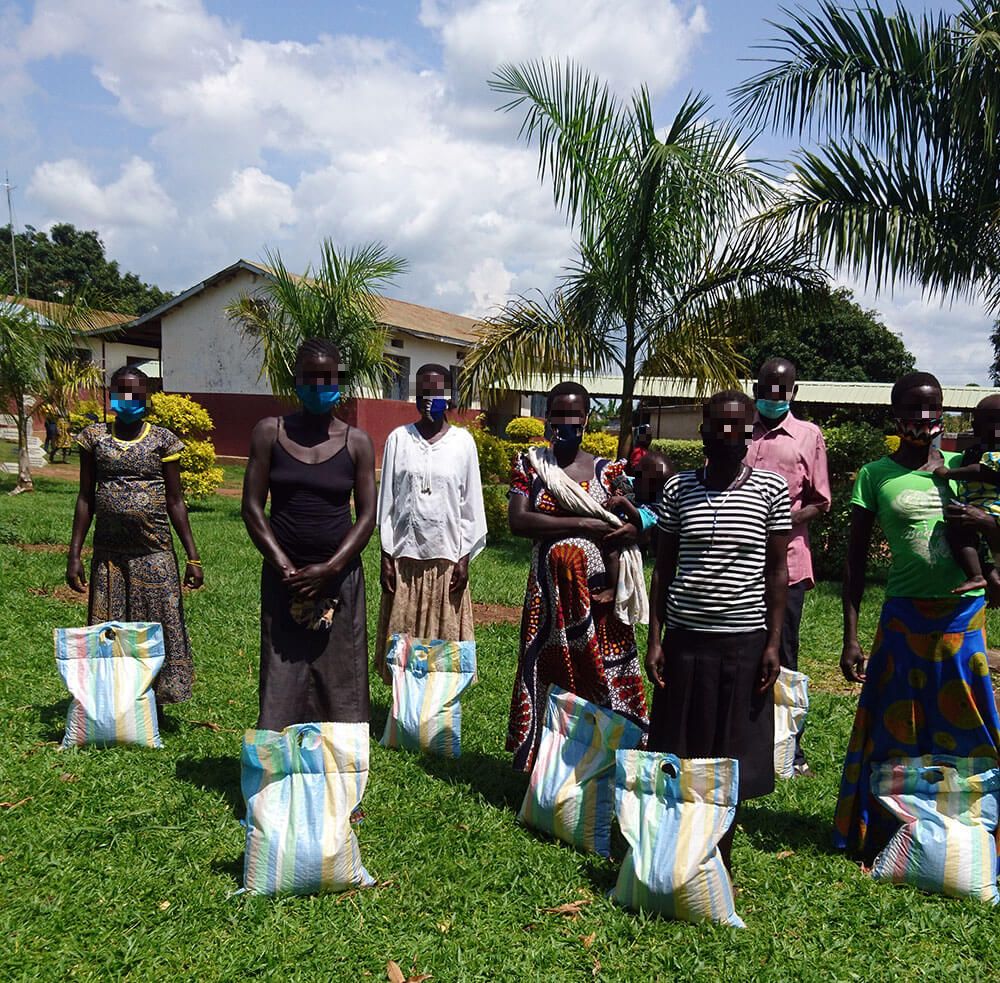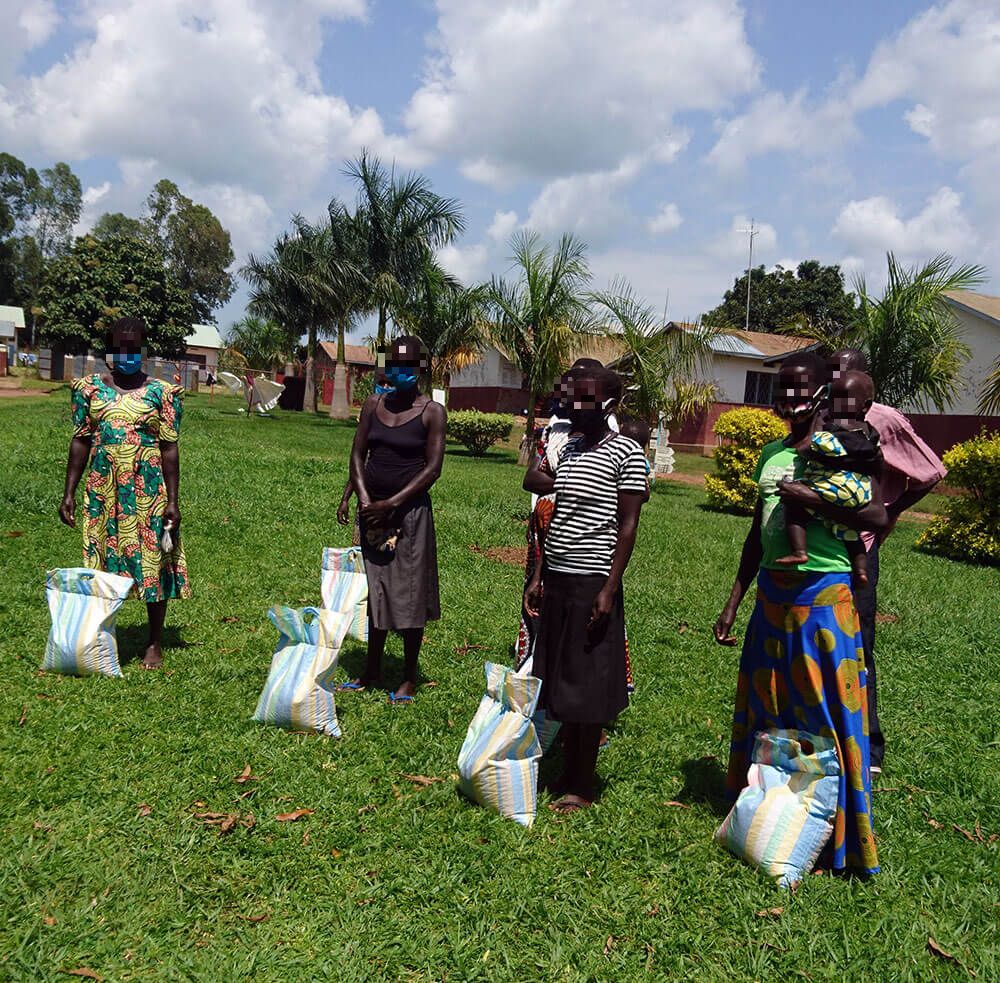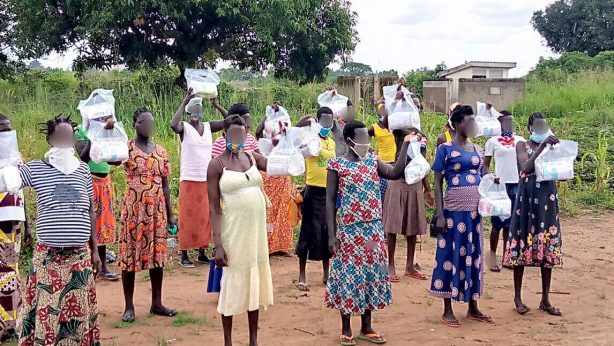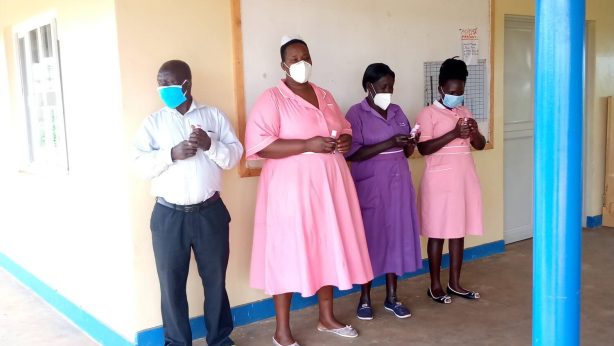Livelihoods Support for Pregnant & Lactating Women Living with HIV in Amuru District
In partnership with GlobeMed, GWED-G continues to implement its project focusing on maternal and child health with livelihoods support in Lamogi and Amuru sub-counties. We recently provided 500 kg of bean and vegetable seeds to 60 households, supporting HIV-positive pregnant and lactating women amid the COVID-19 pandemic.
The provision of bean and vegetable seeds are part of our livelihoods program seeking to improve the nutritional health of families. People living with HIV/AIDS (PLWHA) suffer from lower immunity, and HIV-positive pregnant and lactating women have become among the most vulnerable and affecting due to lockdown measure and restrictions in place due to the coronavirus in Uganda. PLWHA in Uganda continue to face discrimination and stigma within their families and among the wider community. As such, it can be very difficult for PLWHA to find employment to generate incomes.
Our partnership with GlobeMed has targeted these women and households to help increase their income and provide extra nutritional support. By introducing alternative feeding options at an early stage of a newborn’s life, we can reduce mother-to-child transmission of HIV.
The seed distribution targeted small-scale subsistence farmers at the community level within their sub-counties and parishes.
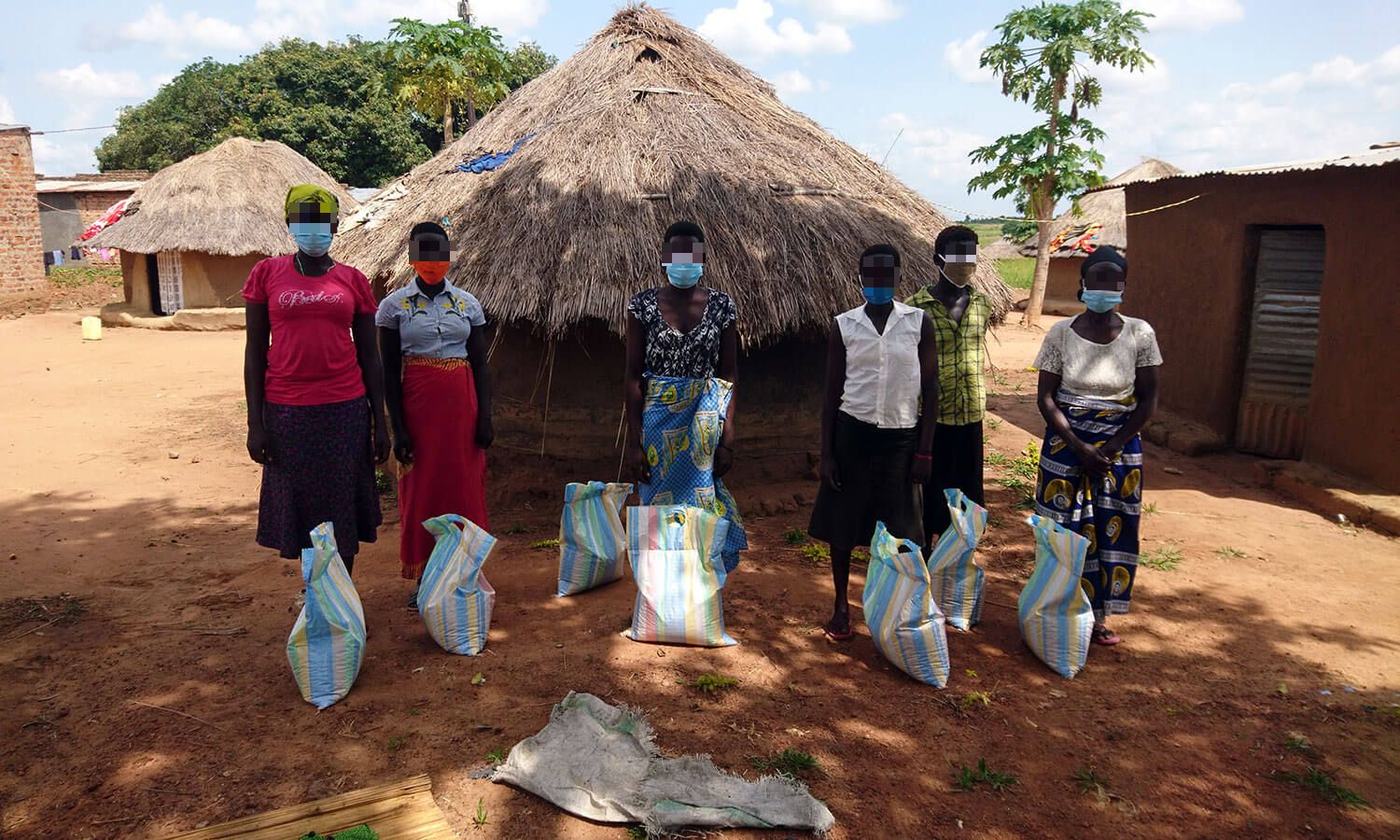
Despite the prolonged lockdown and associated restrictions on movement which has reportedly further plunged some people into poverty, increased food insecurity, increased cases of Sexual and Gender Based Violence, and maternal mortality, GWED-G and GlobeMed continues to support HIV-positive pregnant and lactating women with the promotion of local food crops which are nutritious and healthy for mothers and their babies. The crops that they grow are relatively cheap to produce and grow well in the region.
We have also used the distribution activities to check-in on the status of our beneficiaries. Most of the mothers mentioned that they were not able to make their first and second health appointments with their infants where the children are tested to identify their HIV status. We have also learned that the biggest challenges inhibiting the accessing of health services for this vulnerable group is due to transport restrictions amid the pandemic. In the sub-counties of Lamogi and Amuru, 11 mothers reported that they delivered their babies at home and all infants tested positive for HIV.
As a result of this, we are preparing community VHTs to continue offering counselling services to mother and families whose infants tested positive. GWED-G is also lobbying for more support to acquire seeds and other necessities to support vulnerable PLWHA and mothers in need, after identifying an additional 240 vulnerable mothers in need of livelihoods support.

